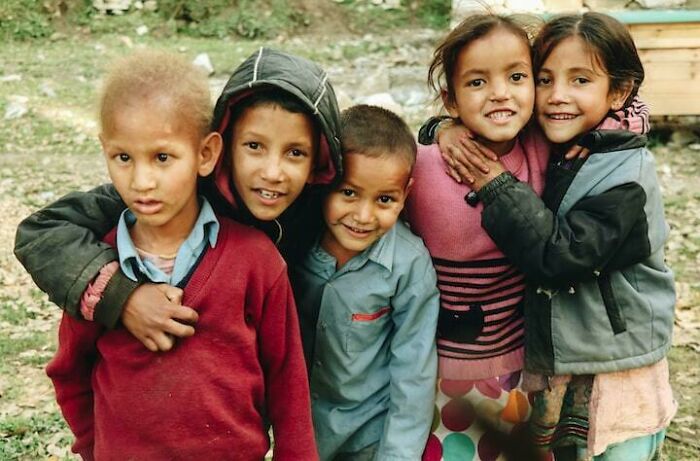How Can You Make A Difference In The Lives Of Poor And Homeless Children?
Children are the future. They are our hope for a better tomorrow. But for millions of children worldwide, poverty and homelessness are a daily reality. These children do not have access to necessities like food, shelter, and education. They are living in squalor and suffering from diseases. Many of them will never get the chance to reach their full potential.
But there is hope. We can make a difference in the lives of poor and homeless children worldwide. By donating to organizations that assist these children, we can help them get the food, shelter, and education they need to survive and thrive. We can also support efforts to prevent child poverty and homelessness in the first place. By working together, we can make sure that every child has a chance to lead a happy and prosperous life.
Why are children living in poverty at a disadvantage?
Children living in poverty are at a significant disadvantage compared to their peers. They often have inadequate access to necessities like food, shelter, and healthcare. This inadequacy can lead to problems like chronic malnutrition, which can affect their physical and cognitive development.
In addition, poverty-stricken children are more likely to experience emotional and behavioral issues. They may have difficulty concentrating in school or develop anxiety and depression. Poverty can also lead to increased exposure to violence in the home and the community.
These circumstances can further damage a child’s mental health and make it difficult to break the cycle of poverty later in life. Consequently, poverty puts children at a severe disadvantage. Without intervention, these children will continue to face significant life challenges.
How can poverty and homelessness negatively impact children’s health and development?
Children who grow up in poverty or are homeless have worse health and developmental outcomes than their more fortunate peers. Poor nutrition, inadequate housing, and exposure to stressful situations can all affect a child’s physical and mental health.
Poor nutrition can lead to stunted growth, developmental delays, and chronic health problems. Inadequate housing can lead to overcrowding and unsanitary living conditions, contributing to the spread of diseases. And exposure to stressful situations can cause anxiety, depression, and behavioral problems. All these factors can profoundly impact a child’s health and development.
Fortunately, there are programs and services available to help children in need. However, much more must be done to address the root causes of poverty and homelessness. We can only ensure that all children can reach their full potential by addressing these issues.
The importance of providing support to poor and homeless children
According to UNICEF, more than 1 billion children are living in poverty. That is one in every five children around the world. Poverty refers to a lack of financial resources, including poor health, lack of education, and social exclusion. Children who grow up in poverty are likely to experience various difficulties that can impede their development and future success.
That is why it is so essential that we provide support for poor and homeless children. By ensuring that they have access to basic needs like food, shelter, and education, we can give them a chance to break the cycle of poverty and build a better future for themselves.
Ways that you can make a difference in the lives of poor and homeless children
There are many ways that you can make a difference in the lives of poor and homeless children. Here are some of the ways that you can help:
Volunteer at a local soup kitchen or food pantry: Donating your time to help serve meals to hungry children is a great way to make a difference.
Collect donated items for a homeless shelter or foster care agency: Items like clothes, toys, and baby supplies are always needed and greatly appreciated.
Raise awareness about poverty and homelessness: Sharing information about the issue can help to get others involved in making a difference.
Advocate for policies that help poor and homeless children: Contact your local representatives and let them know what you think about issues that affect these kids.
Donate money to organizations that work with poor and homeless children: Your financial contribution can go a long way in helping these kids get the assistance they need.
Mentor a child experiencing poverty or homelessness: Spend time with them, listen to them, and offer them support and guidance.
Tutor a child in need: Helping them improve their academic skills can significantly impact their future success.
How can your support help to break the cycle of poverty and homelessness?
Despite the progress made in recent years, poverty and homelessness remain pressing issues in many communities. For those struggling to make ends meet, it can feel like a never-ending cycle with no way out. However, there is hope. With proper support, people can break the cycle of poverty and homelessness and build a better future for themselves and their families.
Your support can make a real difference in the lives of those struggling. By donating to organizations that provide direct assistance, you can help ensure that people have access to the resources they need. Your support can also help fund programs that provide job training and education opportunities. These programs can give people the skills they need to find stable employment and build a better life. Your support can help to break the cycle of poverty and homelessness, making a lasting difference in the lives of those in need.
To conclude, there are several ways to help poor and homeless children. Donating money or items to local charities is a wonderful way to start. Volunteering your time at a shelter or soup kitchen is also a valuable way to help. Finally, simply spreading awareness of the issue can go a long way towards helping to find solutions to the problem of homeless children.
More info: chinarinternational.org

Image credits: unsplash.com
Children are the future. They are our hope for a better tomorrow. But for millions of children worldwide, poverty and homelessness are a daily reality. These children do not have access to necessities like food, shelter, and education. They are living in squalor and suffering from diseases. Many of them will never get the chance to reach their full potential.
But there is hope. We can make a difference in the lives of poor and homeless children worldwide. By donating to organizations that assist these children, we can help them get the food, shelter, and education they need to survive and thrive. We can also support efforts to prevent child poverty and homelessness in the first place. By working together, we can make sure that every child has a chance to lead a happy and prosperous life.
Why are children living in poverty at a disadvantage?
Children living in poverty are at a significant disadvantage compared to their peers. They often have inadequate access to necessities like food, shelter, and healthcare. This inadequacy can lead to problems like chronic malnutrition, which can affect their physical and cognitive development.
In addition, poverty-stricken children are more likely to experience emotional and behavioral issues. They may have difficulty concentrating in school or develop anxiety and depression. Poverty can also lead to increased exposure to violence in the home and the community.
These circumstances can further damage a child’s mental health and make it difficult to break the cycle of poverty later in life. Consequently, poverty puts children at a severe disadvantage. Without intervention, these children will continue to face significant life challenges.
How can poverty and homelessness negatively impact children’s health and development?
Children who grow up in poverty or are homeless have worse health and developmental outcomes than their more fortunate peers. Poor nutrition, inadequate housing, and exposure to stressful situations can all affect a child’s physical and mental health.
Poor nutrition can lead to stunted growth, developmental delays, and chronic health problems. Inadequate housing can lead to overcrowding and unsanitary living conditions, contributing to the spread of diseases. And exposure to stressful situations can cause anxiety, depression, and behavioral problems. All these factors can profoundly impact a child’s health and development.
Fortunately, there are programs and services available to help children in need. However, much more must be done to address the root causes of poverty and homelessness. We can only ensure that all children can reach their full potential by addressing these issues.
The importance of providing support to poor and homeless children
According to UNICEF, more than 1 billion children are living in poverty. That is one in every five children around the world. Poverty refers to a lack of financial resources, including poor health, lack of education, and social exclusion. Children who grow up in poverty are likely to experience various difficulties that can impede their development and future success.
That is why it is so essential that we provide support for poor and homeless children. By ensuring that they have access to basic needs like food, shelter, and education, we can give them a chance to break the cycle of poverty and build a better future for themselves.
Ways that you can make a difference in the lives of poor and homeless children
There are many ways that you can make a difference in the lives of poor and homeless children. Here are some of the ways that you can help:
Volunteer at a local soup kitchen or food pantry: Donating your time to help serve meals to hungry children is a great way to make a difference.
Collect donated items for a homeless shelter or foster care agency: Items like clothes, toys, and baby supplies are always needed and greatly appreciated.
Raise awareness about poverty and homelessness: Sharing information about the issue can help to get others involved in making a difference.
Advocate for policies that help poor and homeless children: Contact your local representatives and let them know what you think about issues that affect these kids.
Donate money to organizations that work with poor and homeless children: Your financial contribution can go a long way in helping these kids get the assistance they need.
Mentor a child experiencing poverty or homelessness: Spend time with them, listen to them, and offer them support and guidance.
Tutor a child in need: Helping them improve their academic skills can significantly impact their future success.
How can your support help to break the cycle of poverty and homelessness?
Despite the progress made in recent years, poverty and homelessness remain pressing issues in many communities. For those struggling to make ends meet, it can feel like a never-ending cycle with no way out. However, there is hope. With proper support, people can break the cycle of poverty and homelessness and build a better future for themselves and their families.
Your support can make a real difference in the lives of those struggling. By donating to organizations that provide direct assistance, you can help ensure that people have access to the resources they need. Your support can also help fund programs that provide job training and education opportunities. These programs can give people the skills they need to find stable employment and build a better life. Your support can help to break the cycle of poverty and homelessness, making a lasting difference in the lives of those in need.
To conclude, there are several ways to help poor and homeless children. Donating money or items to local charities is a wonderful way to start. Volunteering your time at a shelter or soup kitchen is also a valuable way to help. Finally, simply spreading awareness of the issue can go a long way towards helping to find solutions to the problem of homeless children.
More info: chinarinternational.org

Image credits: unsplash.com

 Dark Mode
Dark Mode 

 No fees, cancel anytime
No fees, cancel anytime 






2
0